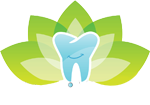Tips for a Speedy Recovery after a Tooth Extraction
If you have a wisdom tooth that’s causing obstruction or a decayed tooth that’s beyond repair, it may be necessary to extract it. The tooth extraction procedure involves surgically removing the complete tooth while administering local or general anesthesia, depending on the extraction’s complexity and tooth condition.
While tooth extractions are generally safe and uncomplicated, the recovery period immediately following the surgery can last from one to two weeks.
Post Tooth Extraction Aftercare
By following the proper aftercare instructions, you can expedite the recovery process.
Eat A Soft Food and Diet
To promote cell regeneration and wound healing, it’s essential to have a diet high in nutrients. But while you’re in recovery, avoiding hard foods that could irritate the empty tooth socket is important.
Stick to a soft food diet to prevent damaging the soft tissue surrounding your surgical site. In the first few days after your procedure, it’s best to consume easily digestible and nutritious foods like smoothies made with fruits, lukewarm blended soups or broth, yogurt, oatmeal, scrambled eggs, mashed avocado, and soft fish such as tilapia.
Rest
Taking sufficient rest is vital after tooth extraction in Toronto, ON. Steer clear of activities that involve bending over or lifting heavy objects, as this can raise the blood pressure in your head, causing bleeding at the surgical site.
To minimize post-operative swelling and bleeding, it’s recommended to rest with your head propped up on a pillow. This helps to facilitate the lymph and blood flow away from the surgical area, reducing inflammation and promoting quicker healing.
Cold Therapy
Swelling following a tooth extraction can persist for as long as seven days after the procedure, reaching its maximum around the third day. If swelling is excessive, it can impede the healing process and prolong your recovery time.
To deal with swelling, you can intermittently apply a cold pack to the affected side of your face for 15 minutes at a time. The cold helps reduce swelling by slowing down the blood flow and numbs the area, providing pain relief.
Use Over-the-Counter Medications
After the effects of the anesthesia used during the tooth extraction procedure wear off, you may experience some discomfort in the surgical area. Although the discomfort should diminish within a few days, you can alleviate painful symptoms by taking over-the-counter anti-inflammatory drugs.
It’s important not to use these medications for more than three consecutive days and to follow the recommended dosage instructions. If the pain persists, it could indicate an underlying problem, like an infection or dry socket. In such a scenario, getting in touch with your dentist without delay is advisable.
Maintain Good Oral Hygiene
While brushing or flossing the area around the extraction site for two days after the procedure is not advisable, you can still maintain good oral hygiene by rinsing with a saltwater solution. To make the solution, dissolve a teaspoon of table salt in a cup of warm water, and use this to rinse your mouth in the morning and evening gently and after eating to remove food debris and prevent infection.
Pain After Tooth Pain
Typically, pain medication is necessary after a tooth extraction procedure. If you can take ibuprofen, the recommended dose is 400-600 mg every 6-8 hours or as instructed by your physician. Ibuprofen acts as a pain reliever and an anti-inflammatory agent. If you are unable to take ibuprofen, you can take 1-2 tablets of regular Tylenol® every 4 hours instead.
How to Prevent Infection After Tooth Extraction
To prevent infection after wisdom tooth extraction, it is important to adhere to the instructions given by your oral surgeon. Arlington Dental Surgeons can guide you on how to clean and care for the treatment site at home, as well as provide details on prescription medications, dietary recommendations, and other necessary information for recovery.
In addition, maintaining excellent oral hygiene is crucial after tooth extraction. Patients should keep their teeth and gums clean and avoid disrupting the blood clot that forms at the extraction site. Rinsing your mouth gently with salt water and allowing it to drain instead of forcefully spitting is recommended. An antiseptic solution may also be suggested as part of your daily routine. It is essential not to pick or pull at the blood clot; if you have any questions, you can contact our Toronto dental clinic for guidance.

